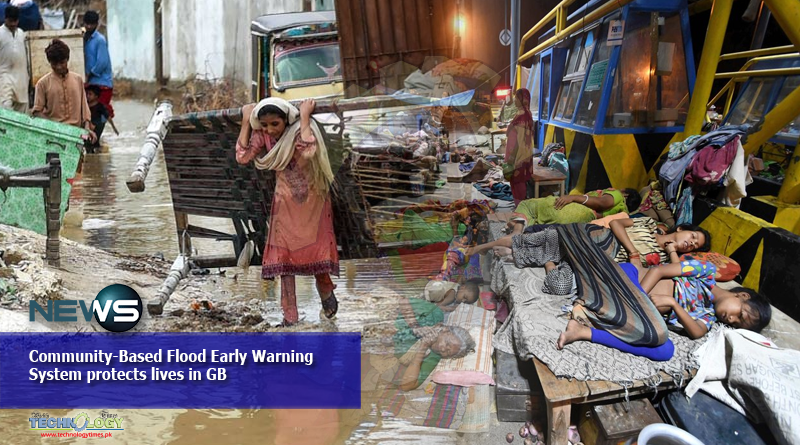ICIMOD with its local partners piloted the Community-Based Flood Early Warning System (CBFEWS) for the first time in Pakistan specifically in GB. Since the first pilot, the CBFEWS approach has undergone a number of tests and trials to make it more compatible and effective in saving the lives and livelihoods of vulnerable communities across Afghanistan, India, Nepal, and Pakistan.

Community-Based Flood Early Warning System(CBFEWS) functions through the human-technology interface. The technology is managed by communities and detects rising water levels upstream through its sensors, following which it triggers a siren to alert vulnerable communities downstream to move to safer locations. Though CBFEWS relays warning during flood emergencies, it is also imperative that the communities are well prepared to respond to such flood warnings.
The Gilgit-Baltistan region of Pakistan is highly vulnerable to natural disasters, particularly water-induced hazards. ICIMOD surveyed 250 villages in the region in 2017 and found that 46% of the population is at risk from natural disasters including flash floods, glacial lake outbursts floods, and earthquakes. In Khaplu and Shigar villages in Baltistan, about 90% of the respondents indicated that climate- and water-induced hazards (of which around 82.2% are flash floods) have increased in the last 30 years.
Given the lack of adequate early warning mechanisms in the region, the intense and rapid floods cause considerable loss of lives and property downstream. Around 26% of the survey respondents attributed the lack of coping mechanisms as a key factor in the vulnerability of the villages to disasters. Additionally, the survey found women to be the group most vulnerable to disasters. The local and indigenous methods of warning and preparedness are not sufficient to cope with the changing flood patterns in terms of frequency and magnitude. Almost all respondents stated that there was no technology-driven coping strategy or mechanism for monitoring hazard events in Khaplu and Shigar villages.
Natural disasters cannot be avoided, but their impact on local communities can be managed using indigenous, regional, and global knowledge and experiences. Early warning systems have been developed globally to provide flood information. However, there is a huge gap in disseminating this information to vulnerable communities, as identified in the Hyogo Framework for Action, the United Nations Framework Convention on Climate Change (UNFCCC), and the Intergovernmental Panel on Climate Change’s (IPCC) 2012 special report on extreme events and disasters.
